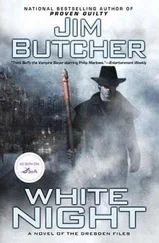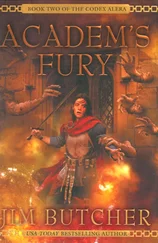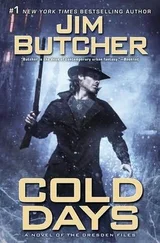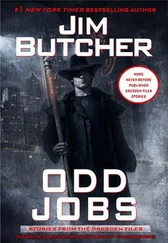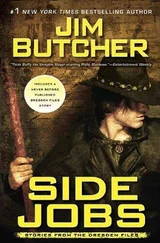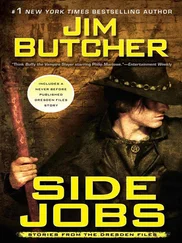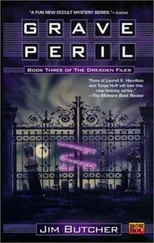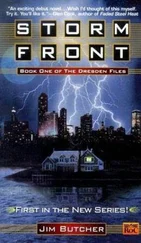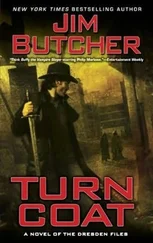“Good,” she said. “I thought you would. I’ll come check in a few days.” Mouse emerged from the darkness, not even breathing very hard from running to keep up with the Beetle. He immediately went over to Mrs. Spunkelcrief, sat, and offered her his right paw to shake. She was so tiny and the dog so large that she hardly had to bend down to grip his paw. She beamed broadly at Mouse, shook, and then patted his head fondly. “You can tell a lot about a man from how he treats his dog,” she said.
Mouse walked over to me, sat down panting happily, and leaned his shoulders against my hip affectionately, all but knocking me down.
Mrs. Spunkelcrief nodded, satisfied, and turned to walk away. Then she paused, muttered something to herself, and turned back around again. She dug into her robe’s pocket and produced a white envelope. “I almost forgot. This was lying on your stairs, boy.”
I took it from her with a polite nod. “Thank you, ma’am.”
“Welcome.” She shivered and wrapped her shawl a little more tightly around her. “What is the world coming to? People breaking down doors.”
I shot a glance at Molly, who nodded and immediately went to Mrs. Spunkelcrief’s side, offering an arm for support. My landlady beamed up at her, saying, “Bless you, child. My cane arm got tired on the way down.” Molly began helping her back up the little ramp to her apartment’s front door.
Mouse immediately went to the bottom of the stairs, his nose questing. Then he turned back to me, tail fanning the air gently. No surprises lurked in my apartment. I went on down into it, waving the candles and fireplace to life with a murmur and a gesture, tearing open the envelope as I went to the fireplace to open it.
Inside was a piece of folded paper and another, smaller envelope, upon which was written, in Luccio’s flowing writing, READ ME FIRST. I did:
If you are receiving this letter, it is because someone has rendered me unable to contact you. You must presume that I have been taken out of play entirely.
The bearer of this note is the person I trust the most among every Warden stationed at Edinburgh. I cannot know the particulars of my neutralization, but you can trust his description implicitly, and I have found his judgment to be uncommonly sound in subjective matters.
Good luck, Harry.
-A-
I stared at the note for a moment. Then I unfolded the second piece of paper, very slowly. This one was written in blocky letters so precise that they almost resembled a printed font, rather than handwriting:
Hullo, Dresden.
Luccio wnted me to bring this note to you in the event something happened to her. No idea what her note says, but I’m to give you whatever information I can.
I’m afraid it isn’t good news. The Council seems to have gone quite mad.
After your appearance at Cristos’s grandstand, a number of ugly things happened. Several young Wardens were caught debating amongst themselves about whether or not they should simply destroy the duchess in Edinburgh to ensure that the war continued—after all, they reasoned, the vampires wouldn’t be suing for peace if they could still fight. On Cristos’s orders, they were arrested and detained by older members of the Council, none of whom were Wardens, in order to Prevent Them from Destabilizing Diplomatic Deliberations.
Ramirez heard about what had happened and I suspect you can guess that his Spanish-by-way-of-America reaction was more passionate than rational. He and a few friends, only one of whom had any real intelligence, hammered their way into the wing where the Wardens were being detained—at which point every single one of them (except for the genius, naturally) was captured and similarly imprisoned.
It’s quiet desperation here. No one can seem to locate anyone on the Senior Council except Cristos, who is quite busily trying to Save Us from Ourselves by sucking up to Duchess Arianna. The Wardens’ chain of command is a smashing disaster at the moment. Captain Luccio went to Cristos to demand the release of her people and is, at this time, missing, as are perhaps forty percent of the seniormost Wardens.
She asked me to tell you, Dresden, that you should not return to Edinburgh under any circumstances until the Senior Council sorts this mess out. She isn’t sure what would happen to you.
She also wanted me to tell you that you were On Your Own.
I will send dispatches to you as events unfold—assuming I don’t Vanish, too.
“Steed”
PS—Why, yes, I can in fact capitalize any words I desire. The language is English. I am English. Therefore mine is the opinion which matters, colonial heathen.
I read over the letter again, more slowly. Then I sat down on the fireplace mantel and swallowed hard.
“Steed” was an appellation I’d stuck on Warden Chandler, who was a fixture of security in Edinburgh, one of the White Council’s home guards, and, once I had thought upon it, one of the guys who I’d always seen operating near Anastasia and in positions of trust: Standing as the sole sentinel at a post that normally required half a dozen. Brewing the Wardens and their captain their tea.
He and I had been the only ones present at the conversation where I’d tacked that nickname on him, thanks to the natty suit and bowler he’d been wearing, and the umbrella he’d accessorized—or maybe it was accessorised, in England—with, so the signature itself served as his bona fides. The flippant tone was very like Chandler, as well. I also knew Anastasia’s handwriting, and besides, the paper on which her letter was written was scented with one of the very gentle, very subtle perfumes she preferred.
The message was as legitimate as it was likely to get, under the circumstances.
Which meant we were in real trouble.
The White Council carried a fearsome reputation not simply because of its capability of engaging in direct action against an enemy, but because it wielded a great deal of economic power. I mean, it doesn’t take a genius to get rich after two hundred and fifty years of compounded interest and open trading. There was an entire brigade of economic warriors for the White Council who constantly sought ways to protect the Council’s investments against hostile economic interests sponsored by other long-lived beings, like vampires. Money like that could buy a lot of influence. Not only that, but the Council could make the world a miserable place for someone who had earned their displeasure, in about a million ways, without ever throwing magic directly at someone. There were people in the Council who could play dirty with the most fiendish minds in history.
Taken as a whole, it seemed like a colossus, an institution as fixed and unmoving as a vast and ancient tree, filled with life, with strength, its roots sunk deep into the earth, a survivor of the worst storms the world had offered it.
But all of it, the power, the money, the influence, revolved around a critical core concept—every member of the White Council acted in concert. Or at least, that was the face that was supposed to be presented to the outside world. And it was mostly true. We might squabble and double-deal one another in peacetime, but when there was an enemy at hand we closed ranks. Hell, they’d even done that with me, and most of the Council thought that I was the next-best thing to Darth Vader. But at the end of the day, I think a lot of them secretly liked the idea of having Vader on the team when the monsters showed up. They didn’t love me, never would, and I didn’t need them to love me to fight beside them. When things got hairy, the Council moved together.
Читать дальше

